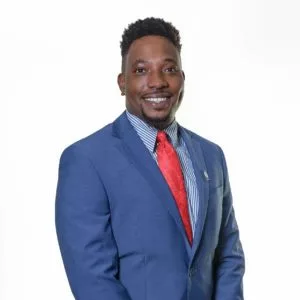Thought Disorder Treatment
Thought disorder is often found in people who suffer from other mental illnesses such as schizophrenia, mania, and depression; however, thought disorder is a mental illness on its own as well, not just a symptom. This mental health illness is characterized by disruptions in the way individuals process and express their thoughts. It can manifest in various ways, including disorganized thinking, difficulty in maintaining a coherent flow of ideas, and impaired logical reasoning.
The treatment of thought disorders requires a comprehensive and multidisciplinary approach, integrating pharmacological, psychotherapeutic, and psychosocial interventions. At Legacy Healing Center, our qualified mental health professionals will assist you in creating a comprehensive thought disorder treatment to get you on the path toward recovery.
Understanding Thought Disorder
Thought disorder is a cognitive condition characterized by disorganized thinking, which can significantly impair an individual’s ability to communicate and process information coherently. This disruption in thought patterns manifests in various ways, including loose associations, tangential thinking, illogical sequences of ideas, and difficulties in focusing or maintaining a coherent narrative. People may experience a range of thought disorder symptoms that impact their daily lives. For example, they might find it challenging to follow a conversation or complete tasks that require logical sequencing. Their speech may become fragmented, jumping from one topic to another without clear connections, making it difficult for others to understand them. In some cases, individuals may exhibit “word gibberish,” where their speech is a jumble of words and phrases that lack meaningful structure.
Thought disorders can significantly impact an individual’s social interactions, work performance, and overall quality of life. Disorganized thinking can lead to misunderstandings, social isolation, and difficulties in maintaining relationships or employment. Early diagnosis and comprehensive treatment are crucial in managing the symptoms and improving the long-term prognosis for individuals affected by these disorders.
Types of Thought Disorders
As with other mental illnesses, there are various types of thought disorders, including:
- Alogia: People with alogia personify small talk. They give short and small answers to questions if they even choose to speak. Most people with alogia don’t speak unless prompted.
- Blocking: Those with thought blocking often pause midsentence and when they resume speaking it is often about a completely different topic.
- Circumstantiality: Individuals that exclude circumstantial thought blocking include unnecessary details that don’t pertain to their original train of thought. When they finally come back to their main point there was almost a whole other story in their speech.
- Clang Association: A person who suffers from clang association often makes word choices based on how a word sounds. This is characterized by the use of rhymes and alliterations to create a sentence which often leads to a sentence not making sense.
- Distractible Speech: Those with distractible speech have trouble staying on topic and often stray into other topics stemming from distractions in their surroundings.
Understanding thought disorders is essential for developing effective interventions and support systems that can help individuals manage their symptoms and lead more fulfilling lives. By recognizing the complexities and signs of a thought disorder, mental health professionals, caregivers, and society at large can better support those affected and work towards reducing the stigma associated with these challenging conditions.
A Comprehensive Approach to Thought Disorder Treatment
The treatment of thought disorders necessitates a multifaceted approach aimed at addressing the underlying cognitive disturbances while also providing support for associated symptoms and challenges. This strategy typically involves a combination of pharmacological interventions, psychotherapy, and psychosocial support tailored to the individual’s needs.
Pharmacotherapy
Pharmacological treatment forms the cornerstone of managing thought disorders, particularly in conditions like schizophrenia. Antipsychotic medications are commonly prescribed to alleviate symptoms such as hallucinations, delusions, and disorganized thinking. These medications work by modulating neurotransmitter activity in the brain, particularly dopamine, to help restore cognitive function and reduce symptom severity. Newer-generation antipsychotics are often preferred due to their reduced risk of side effects, but the choice of medication depends on factors such as symptomatology, tolerability, and individual response.
Psychotherapy
Psychotherapeutic interventions play a crucial role in addressing cognitive deficits and helping individuals develop coping strategies for managing thought disturbances. Cognitive-behavioral therapy (CBT) has shown promise in treating thought disorders by targeting maladaptive thought patterns and improving problem-solving skills. Cognitive remediation therapy (CRT) focuses specifically on enhancing cognitive functioning through structured exercises and tasks designed to strengthen attention, memory, and executive functioning. These therapies are often conducted in individual or group settings and can complement medications in promoting recovery.
Psychosocial Support
Psychosocial treatments are essential for addressing the broader impact of thought disorders on individuals’ lives and promoting social functioning and community integration. Social skills training helps individuals improve interpersonal communication, problem-solving, and conflict-resolution skills, enabling them to navigate social interactions more effectively. Supported employment and education programs assist individuals in finding and maintaining meaningful employment or educational opportunities, fostering independence and self-esteem. Additionally, family therapy and peer support groups provide valuable emotional support and education for both individuals with thought disorders and their caregivers, helping to reduce stigma and strengthen support networks.
Lifestyle Modifications
Lifestyle factors such as diet, exercise, and stress management also play a significant role in supporting overall mental health and well-being. Encouraging individuals to adopt healthy lifestyle habits, including regular exercise, balanced nutrition, adequate sleep, and stress-reduction techniques such as mindfulness and relaxation exercises, can complement other treatment modalities and promote symptom management and recovery.
Long-Term Monitoring and Support
Thought disorders are often chronic conditions that require long-term management and support. Regular monitoring by mental health professionals, including psychiatrists, psychologists, and social workers, is essential to assess treatment response, monitor for potential side effects of medications, and adjust treatment plans as needed. Continued engagement in therapy, support groups, and community-based services can provide ongoing support and resources for individuals and their families, promoting sustained recovery and improved quality of life.
Reach Out to Your Local Rehab and Mental Health Facilities
If you or a loved one is showing signs of one or many thought disorders, reach out to your local Legacy Healing Center. We have mental health rehab facilities nationwide in, New Jersey, California, Florida, and Ohio. Contact us if you are seeking professional help with mental illnesses. We offer tailored thought disorder treatment plans for those in need. If you would like to read more about what Legacy Healing Center has to offer, check out our treatment articles. Remember, our mental health rehab center takes your discretion seriously and our helpline is 100% confidential.






